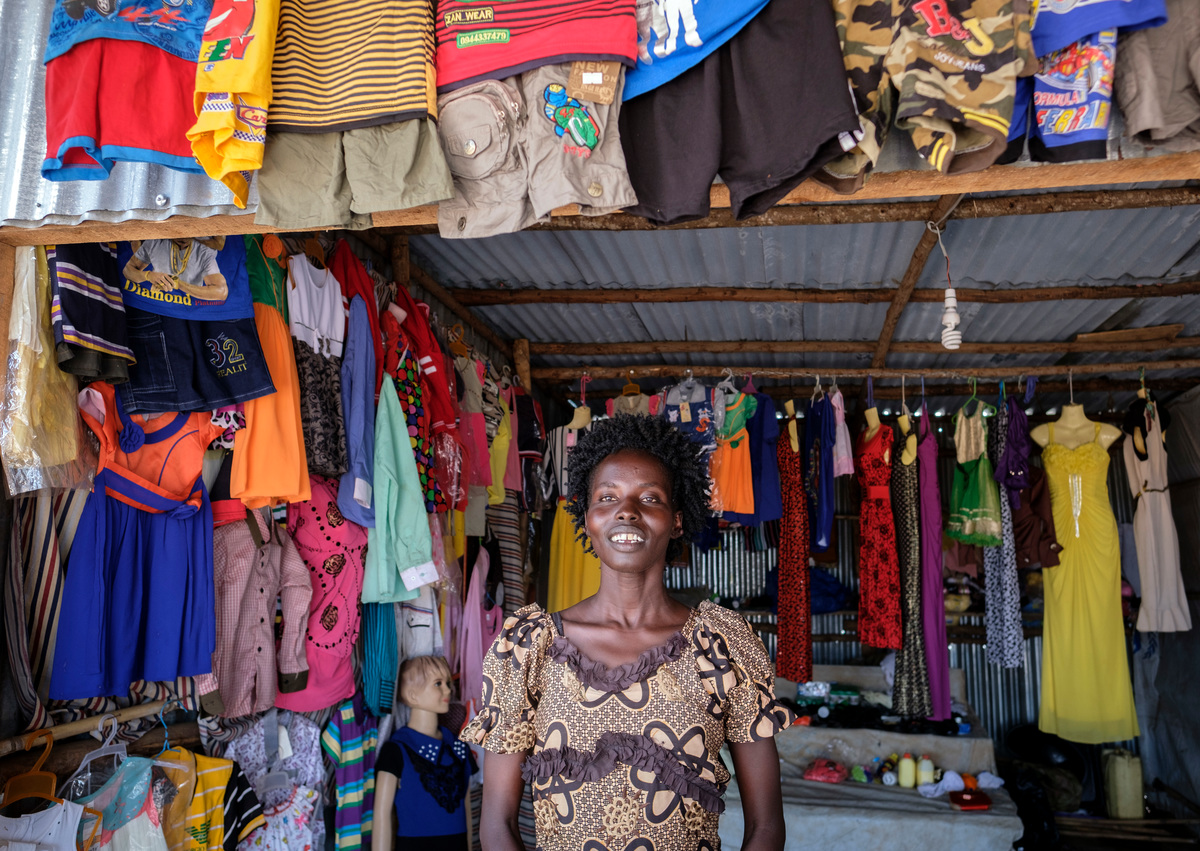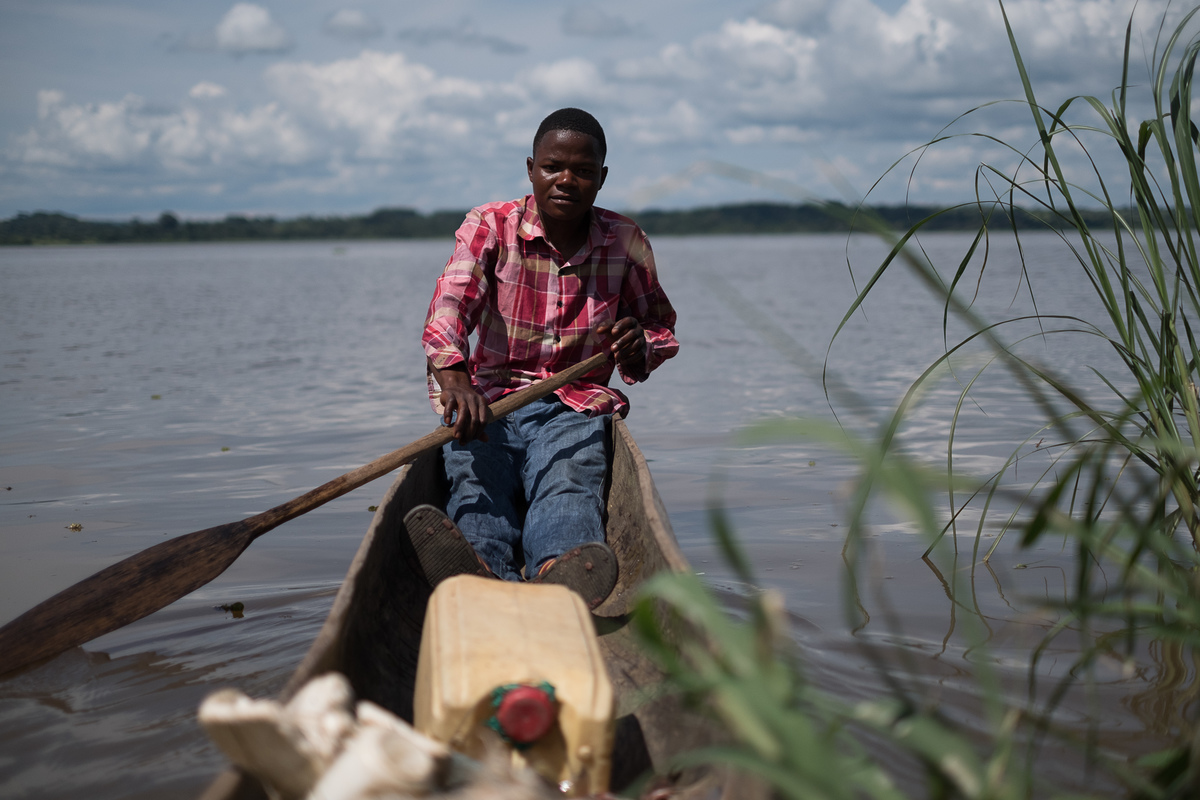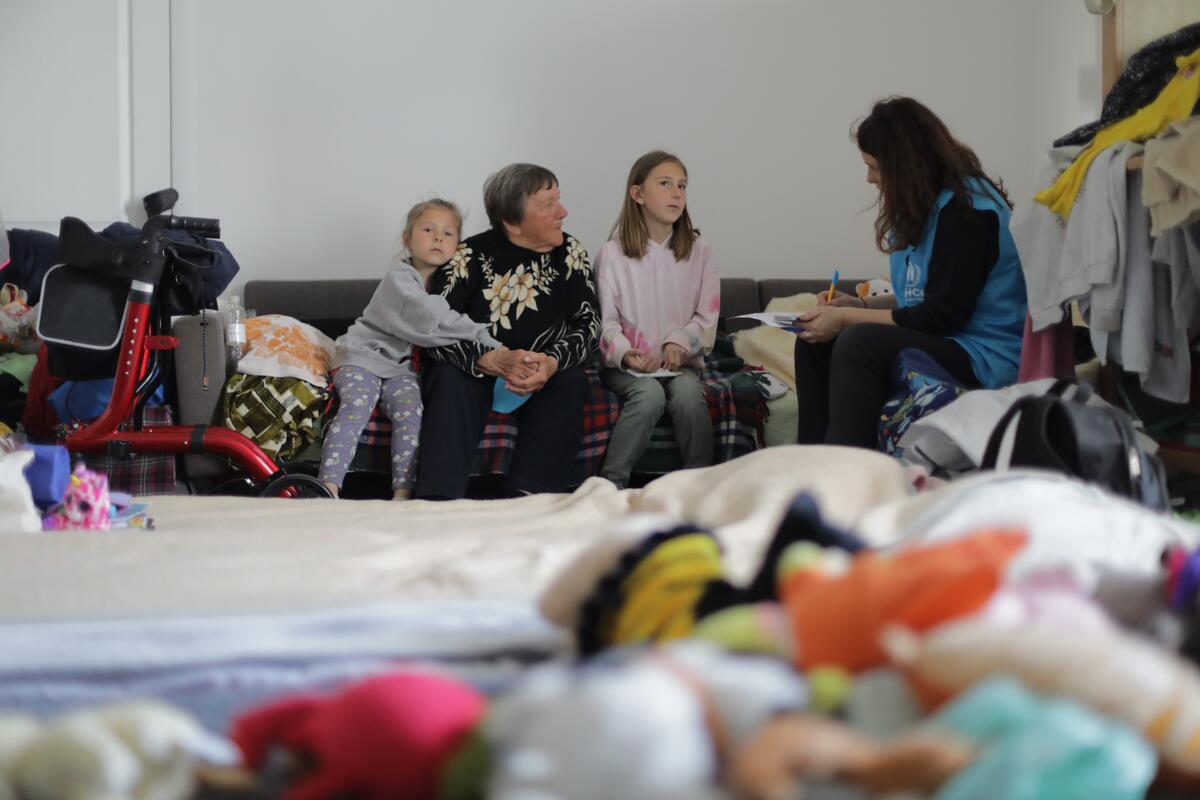From crisis comes opportunity, says UNHCR protection chief
From crisis comes opportunity, says UNHCR protection chief

GENEVA – UNHCR’s protection chief urged delegates at a conference in Geneva today to take advantage of plans to strengthen responses to refugee crises to gain long-term improvements in the lives of the displaced and their hosts.
Speaking on the second day of a two-day meeting on how to improve the international response to large movements of refugees, UNHCR’s Assistant High Commissioner for Protection, Volker Türk, said that it was critical to think in the longer term from the start of a refugee crises.
“The refugee response involves at the end of the day a holistic approach, covering humanitarian action, protection, development and an urgent search for solutions” he said noting that “most refugee situations are protracted and last longer than we think.”
“It is possible to see opportunities in difficult situations. The evidence shows it is possible to come to a win-win situation for refugee and host communities,” said Türk.
Ten countries are currently sheltering some 60 per cent of the world’s 22.5 million refugees.
The Geneva meeting takes place at a time of record displacement worldwide. Ten countries are currently sheltering some 60 per cent of the world’s 22.5 million refugees and more than 84 per cent of refugees are hosted by low or middle income countries.
Against this backdrop, UNHCR has been asked by the UN General Assembly – in last year’s New York Declaration for Refugees and Migrants – to develop a global compact on refugees. As part of that process, UNHCR is hosting a series of thematic discussions to generate ideas for a programme of action in the refugee compact.
A key focus of today’s discussions was how refugees could be included into the national, health, education, social services and development plans by the countries hosting them, which in turn should be supported to do so.
A panelist from the Adjumani district authority in northern Uganda, which has been at the forefront of South Sudan’s refugee crisis in recent years has one of the most progressive refugee systems in the world, told delegates he saw including and educating refugees in local systems as an opportunity to contribute to peace building in the region.
“I strongly believe by supporting education we help not only the refugees but the entire peace process in South Sudan,” explained James Leku, Chairman of the Adjumani district, who also spent time as a refugee in southern Sudan.
“If refugees return to South Sudan as well informed citizens, the whole country will benefit. Education can break the cycle of violence. It is our duty to contribute to the region in which we live,” he said noting that both the prime minister and president of Uganda had also spent time as refugees.

Uganda provides land for refugees to farm and cultivate, allows refugees to live in open settlements, move freely, work, run businesses and includes them in national development plans.
“We have received more refugees in the last month than Europe did in the last 12 months,” he said, explaining that as chairman of the district he is a ‘guardian of refugees’ as well as former refugee himself.
“Local governments are expected to deliver to refugees and host communities alike. This is not without challenges, but leads to improved outcomes for both groups,” he explains.
The importance of integrating refugees into local education systems and increasing access to scholarships for higher education was echoed by refugee youth representatives at the meeting.
Simon Marot Toulong, a refugee from South Sudan, made an impassioned plea for refugee children to be allowed to study with locals not just to increase access to education but to ease integration and social cohesion.
Toulong began his primary school education in Uganda at age nine, where he has lived for 15 years, walking seven kilometres a day in the early years to attend primary school. He later became the first refugee from South Sudan to win a DAFI scholarship, which he describes as a “once in a lifetime chance”.
"We should be the last generation to suffer as separated children in a refugee camp."
Two years ago, Toulong co-founded the Africa Youth Network to focus on peace, security and inclusion among young refugees who have been left vulnerable by war and lack of opportunities.
“We feel we should be the last generation to suffer as separated children in a refugee camp, we feel we should be the last generation to suffer like this in a war,” he said.
Toulong’s group now engages with young people to develop skills in self-awareness, leadership and trust which he describes as critical components in peace building.
“We are going to define our destiny and please join us in peace building,” Toulong told a panel on how to increase the representation of refugees in decision making that affects them at the international and local level. “Please count us in,” he urged.
Throughout the two-day meeting, refugee youth have made a strong call for refugees to be involved in the response to their situation from the outset of a crisis, calling for strategies to meet not just the needs of refugees but also their aspirations.
This week’s thematic discussions were attended by some 300 delegates from governments, NGOs, refugee communities, international organizations and academia. Several proposals on how to strengthen the global response to refugee situations have been put forward for inclusion in the programme of action to be developed by UNHCR.
Wrapping up the meeting, Türk said that several new proposals had been put forward at the meeting to be considered in the coming weeks, and that UNHCR had received a strong sense of support for several proposals set out in a background concept note. He also noted there was strong support for the overall ‘whole-of-society’ approach, which aims to rally a range of actors – the private sector, government, civil society, and refugee communities– to strengthen the global response to refugee situations.
UNHCR will convene the next round of thematic discussions in mid-November, with a specific focus on solutions for refugees.









